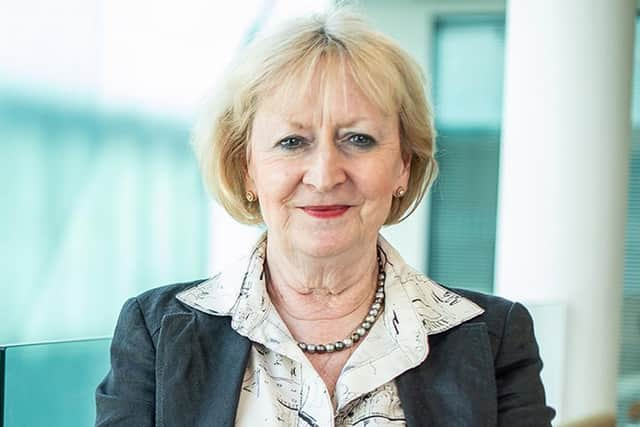Calderdale charity supports pioneering research into link between MND and strenuous exercise
and live on Freeview channel 276
Nick Smith was killed by MND five years ago this December and the Foundation set up in his name is ensuring a lasting legacy ahead of finishing their work on the fifth anniversary.
One part of that is investing £40,000 into a major new study from the University of Sheffield.
Advertisement
Hide AdAdvertisement
Hide AdIt will investigate whether high intensity physical activity is likely to contribute to motor neurone injury in people who have genes that make them susceptible and follows initial research which suggests there is indeed a causal relationship between the two.


It is the second major donation by the charity to the University’s Sheffield Institute for Translational Neuroscience (SITraN) following a £50,000 contribution in 2019.
Professor Dame Pamela Shaw, Director of the University of Sheffield’s Institute for Translational Neuroscience (SITraN), and senior author of the study, said: “We have suspected for some time that exercise was a risk factor for MND, but this analysis has always been controversial. Our initial research confirmed our suspicion that in some people, frequent strenuous exercise leads to an increase in the risk of MND and it is now important we discover as much as we can, as quickly as we can, to further explore the relationship.
“It is important to stress that we know that most people who undertake vigorous exercise do not develop MND. Sport has a large number of health benefits which is why we need to carry out this study to pin-point the precise genetic risk factors involved.
Advertisement
Hide AdAdvertisement
Hide Ad“Complex diseases such as MND are caused by an interaction between genetics and the environment. We urgently need to understand this interaction in order to inform and support individual decision-making, discover pioneering therapies and establish preventative strategies.”
The pioneering study will be a significant step towards unravelling the link which will allow medical professionals to offer advice to those taking part in high impact exercise and sport, particularly for family members of those diagnosed with MND, and allow researchers to continue their work looking at treatments for the rapidly progressing fatal disease which is diagnosed in 2,000 people every year.
The Nick Smith Foundation will contribute to the three-year research project which is being supported by a number of MND charities and organisations. The money will be paid this year ahead of the closure of the charity allowing the research to continue as a lasting legacy.
Stephen Naylor, Chair of The Nick Smith Foundation, said: “In our fight against MND, the more we know, the more we can do – even if that uncovers difficult truths. That is why we were so keen to support this research into the link between strenuous exercise and the development of this awful disease.
Advertisement
Hide AdAdvertisement
Hide Ad“Nick loved rugby league, he played it for most of his life, and it gave him a huge amount of enjoyment. One of our priorities as a charity is to support the development of the sport, especially for young people, and we have invested a lot of money, time and effort in doing that. But sometimes supporting also means asking tough questions, and we want the sport he loved to be as safe as possible for everyone.
“We as a family and a charity have long shared Professor Shaw’s belief that there must be some link between high impact sport, strenuous exercise and the development of MND in those predisposed to the condition. It would be easy to ignore this, to pretend it was not true. But we think that would be wholly wrong. By researching and discovering the truth, we hope action can be taken to reduce the risk whether through advice or treatment.
“Nick would never have wanted someone to not play sport or to not exercise, it was a key part of what made him special. But we wish with all our hearts he was still here today so with our heads we know it is right to do all we can to reduce the risk of other families having to face what we have. We believe this research will do that and be a force for good for rugby league, sport and us all.”